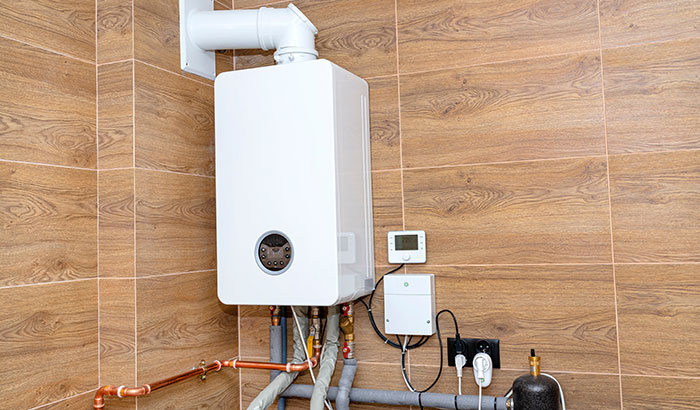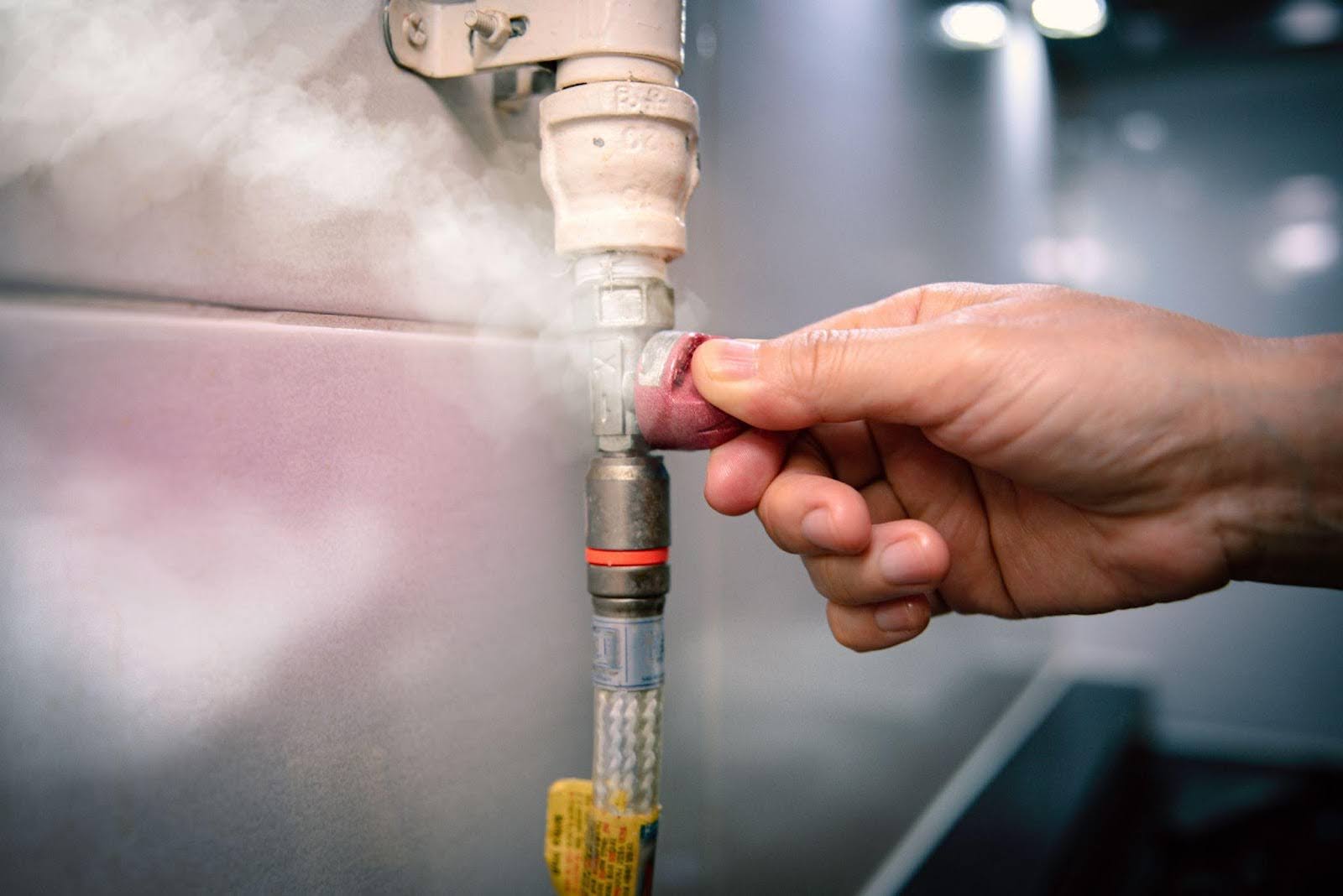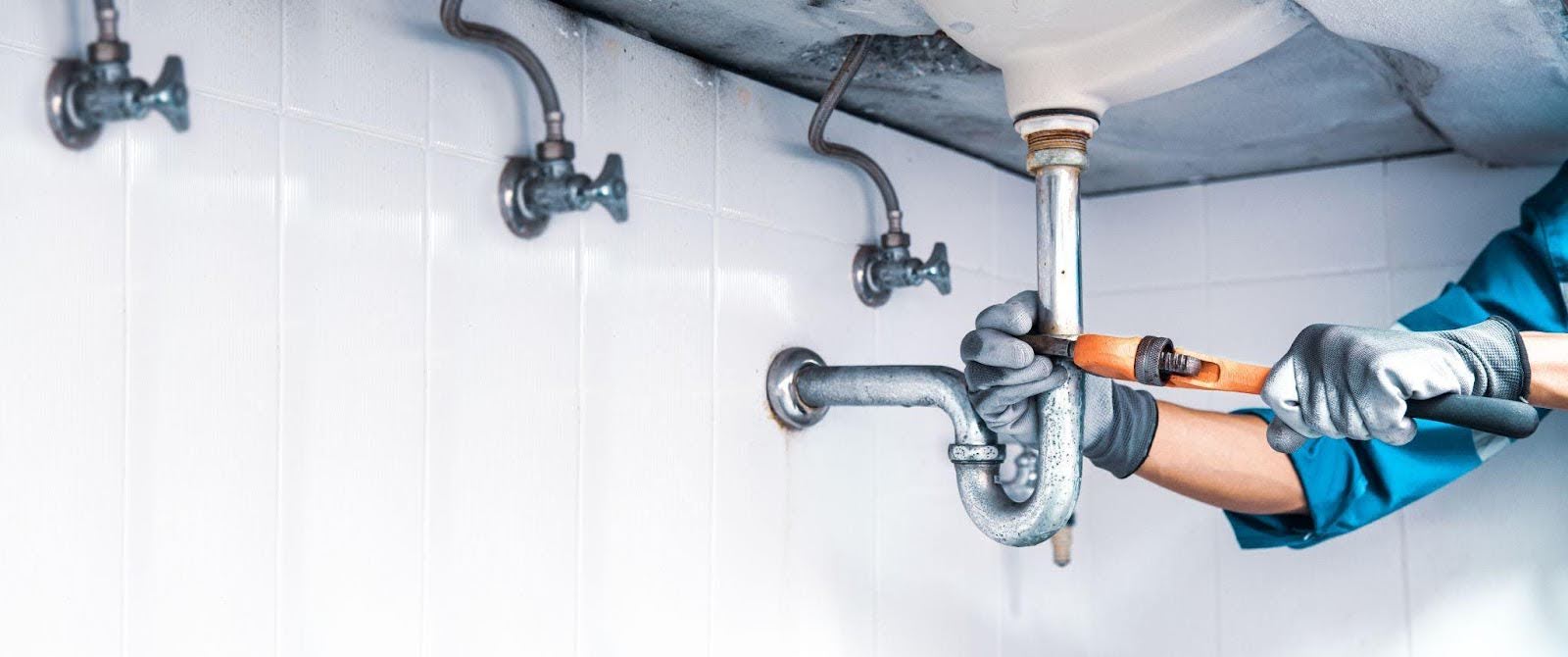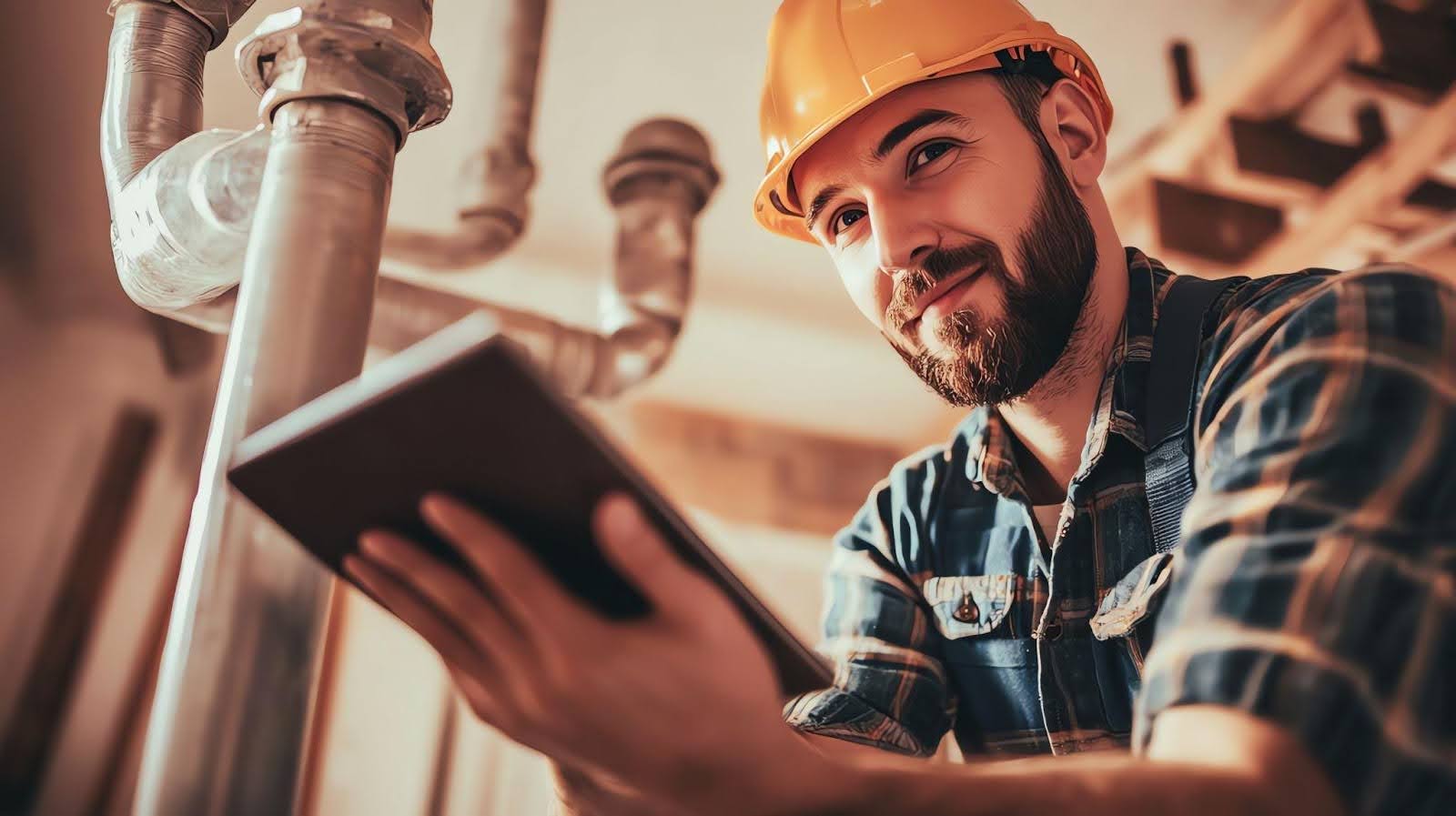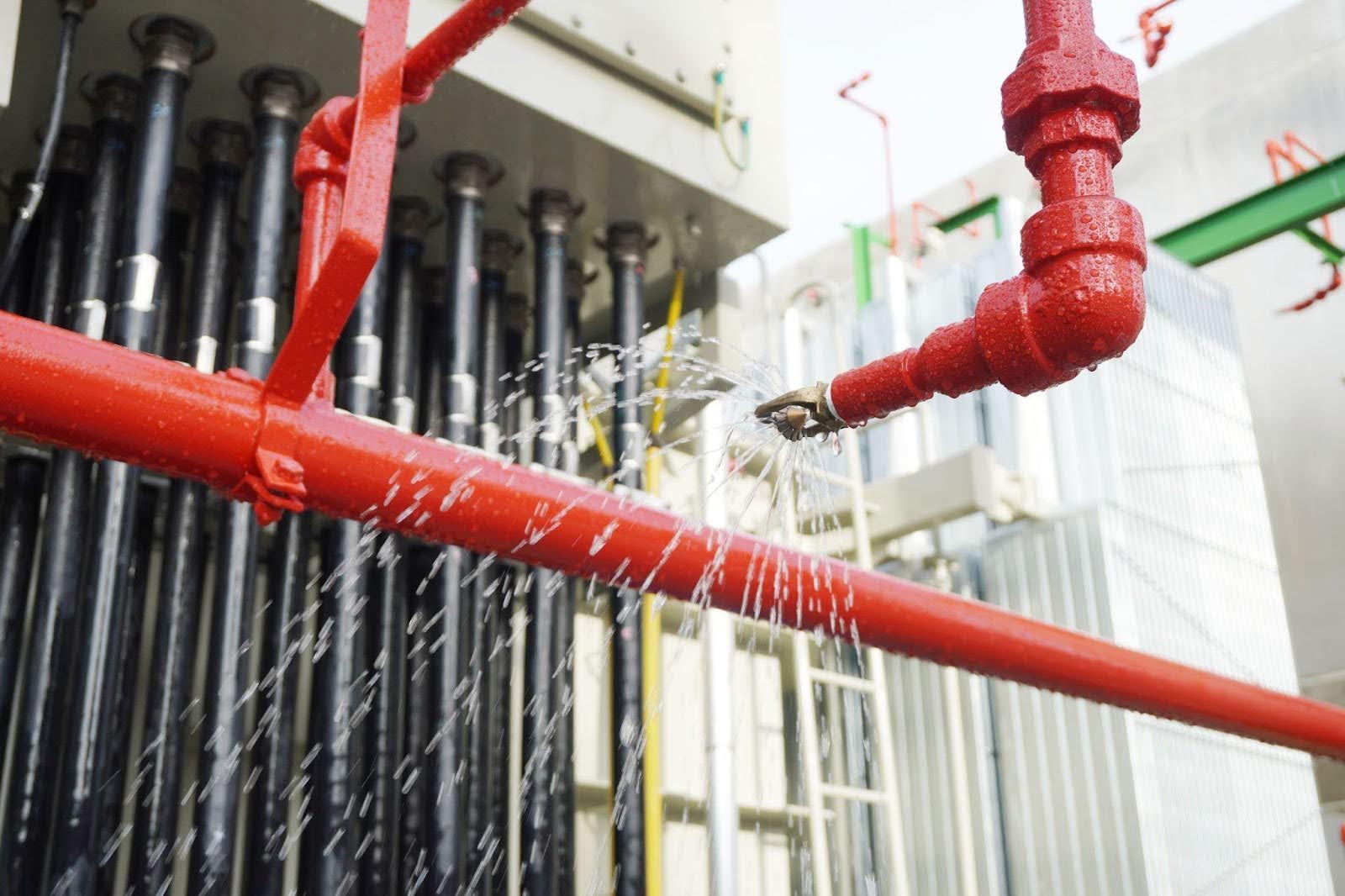Professional gas line installation is vital in providing the energy needed to power essential appliances like stoves, water heaters, and furnaces. Whether you’re moving into a new house or renovating your current one, understanding gas line installations is essential for ensuring a safe and reliable energy supply.
It’s important to address a common question that homeowners often encounter: “Do I need to hire a plumber to install the gas line in my house?” While it might be tempting to take on a DIY approach to save costs, installing a gas line is a complex task that requires specialized knowledge and expertise.
We’ll explore the factors you should consider before deciding and help you weigh the pros and cons of hiring a professional plumber versus attempting the installation yourself. Ultimately, our aim is to equip you with the information you need to make a well-informed and safe choice for your gas line installation project.
What Does Gas Line Installation Entail?
Gas line installation is the process of setting up pipelines that transport natural gas or propane from the main supply to various appliances in your home. It involves intricate planning, precise measurements, and adherence to safety standards.
The installation typically starts at the point of entry, where the gas line connects to the main supply. From there, the pipes are carefully routed to different areas of your house, such as the kitchen, water heater, and furnace.
To ensure proper installation, the process usually includes pipe sizing to determine the appropriate diameter for the gas lines, pressure testing to verify the system’s integrity, and installing shut-off valves for individual appliances.
Additionally, gas lines must be adequately protected against corrosion and damage, which often involves using specific materials and techniques.
Types of Gas Lines in Residential Settings: Natural Gas vs. Propane
In residential settings, natural gas and propane are two common types of gas used. Understanding the differences between them can help you make informed decisions about the gas line installation in your home.
Natural gas is a clean-burning fossil fuel delivered through pipelines from a local utility company. It is the most common type of gas used in homes connected to a natural gas supply network. The advantage of natural gas is that it is generally less expensive than propane and provides a constant supply, as it is directly connected to the utility’s gas source.
Propane, on the other hand, is a liquefied petroleum gas that is stored in tanks on your property. It offers greater flexibility for homes located in areas without access to a natural gas supply network. Propane is often used for cooking, heating, and powering appliances in rural or off-grid locations.
When considering which type of gas to use, it’s essential to factor in the availability in your area, cost considerations, and your specific energy needs.
Risks and Safety Concerns of DIY Gas Line Installations
While taking a DIY approach might seem appealing, installing a gas line is not a task to be taken lightly. Several serious risks and safety concerns are associated with DIY gas line installations.
- Gas Leaks: Improperly installed gas lines can lead to gas leaks, which pose a significant safety hazard. Gas leaks can be highly flammable and explosive, putting your home and family at risk.
- Fire Hazards: Installing a gas line that doesn’t meet safety standards could result in potential fire hazards. Gas leaks near open flames, sparks, or electrical appliances can lead to fires that may cause severe damage.
- Compliance with Building Codes: Gas line installations must adhere to local building codes and regulations. DIY installations may not meet these standards, leading to legal issues and difficulties when selling your home.
Factors to Consider Before DIY Gas Line Installation
If you’re contemplating a DIY gas line installation, it’s essential to carefully assess several critical factors before proceeding. Taking on such a project requires a solid understanding of plumbing and gas systems, compliance with local regulations, and the necessary tools and equipment.
Before embarking on a DIY gas line installation, honestly evaluate your skills and knowledge in plumbing and gas systems. Gas lines demand precision and expertise to ensure safety and efficiency. If you lack experience working with gas lines or plumbing, it’s best to reconsider the DIY approach.
Ask yourself the following questions:
- Have I worked with gas lines before, or is this my first time?
- Do I understand the intricacies of gas connections and pipe fittings?
- Am I familiar with gas line sizing and pressure requirements?
If you feel unsure about any of these aspects, it’s wise to seek the assistance of a qualified professional plumber.
Gas line installations are subject to strict building codes and regulations to safeguard homeowners and their properties. These codes vary from region to region, and it’s crucial to research and understand the specific requirements applicable to your area.
Complying with these regulations is essential for your safety and avoiding potential legal issues down the road. A professional plumber is well-versed in local codes and can ensure your gas line installation meets all necessary requirements.
Understanding the Tools and Equipment
Gas line installations demand specific tools and equipment designed for working with gas pipes and connections. Acquiring and properly using these tools is crucial for a successful and safe installation.
Some of the tools you may need include:
- Pipe wrenches and cutters
- Flaring tools for creating airtight connections
- Pressure gauges for testing the system
Mishandling these tools or using improper equipment can lead to gas leaks, system malfunctions, or even injuries. If you don’t already have the necessary tools and lack experience using them, it’s best to avoid the DIY route and hire a professional plumber who possesses the right tools and expertise.
The Importance of Hiring a Professional Plumber
When it comes to gas line installations, enlisting the services of a qualified professional plumber is of utmost importance. Gas-related work requires specialized knowledge, experience, and adherence to strict safety standards. Let’s delve into why hiring a licensed plumber for your professional gas line installation is the wisest choice.
Professional Expertise and Experience
Gas line installations involve intricate details and precise calculations to ensure a safe and efficient system. Professional plumbers have undergone extensive training and possess hands-on experience in handling gas lines. They are well-versed in local building codes and safety protocols, significantly reducing the risk of errors and potential hazards.
An experienced plumber can properly size the gas lines, choose the right materials, and ensure secure connections to prevent gas leaks and other issues. With their expertise, they can efficiently troubleshoot and resolve any unexpected challenges that may arise during the installation process.
Benefits of Hiring a Licensed Plumber
Hiring a licensed plumber offers numerous benefits that contribute to the success of your professional gas line installation:
- Compliance with Building Codes: Professional plumbers are well-informed about local building codes and regulations. They ensure that your gas line installation meets all the necessary requirements, securing the necessary permits and scheduling inspections as needed.
- Safety and Reliability: Safety is paramount when it comes to gas lines. Plumbers prioritize safety at every step of the installation process. Their workmanship ensures a reliable gas supply and minimizes the risk of gas leaks and potential hazards.
- Proper Equipment and Tools: Professional plumbers come equipped with specialized tools and equipment specifically designed for gas line installations. This ensures the job is done efficiently and precisely, minimizing the chances of errors.
- Insurance Coverage: Reputable plumbers carry insurance that provides protection in case of any unforeseen accidents or damages during the installation. This offers added peace of mind for both the homeowner and the plumber.
While some may consider DIY gas line installations to save on costs, it’s crucial to weigh the potential risks involved. Gas-related work is hazardous and requires a level of expertise that most homeowners lack. Attempting a DIY installation could lead to costly mistakes and compromised safety.
Contact Salisbury Plumbing for a Safe Gas Line Installation
When it comes to gas line installations, safety should be your top priority. At Salisbury Plumbing, we take safety seriously and are dedicated to providing reliable gas line installations for residents in Lehi, Utah, and the surrounding Utah County area. With our team of qualified technicians, you can trust that your gas line installation will be handled with the utmost care and expertise.
Why Choose Salisbury Plumbing?
- Reputable and Experienced: With years of experience in gas line installations, Salisbury Plumbing has earned a reputation for delivering top-notch services and exceptional results.
- Licensed and Certified Technicians: Our team consists of licensed and certified technicians who have undergone rigorous training, ensuring they are well-prepared to install the gas line with precision and efficiency.
- Commitment to Safety: Safety is at the core of everything we do. Our technicians follow strict safety protocols and industry best practices to guarantee a secure and hazard-free gas line installation.
- Reliable Service: When you choose Salisbury Plumbing, you can count on us to complete the installation promptly and reliably, so you can start using your gas appliances without any worries.
Don’t compromise on safety when it comes to your gas line installation. Trust Salisbury Plumbing to provide you with a professional and reliable service that meets all safety standards and regulations.
To schedule your professional gas line installation or learn more about our services, you can reach us through our convenient online form or call us at 385-442-5687. Let Salisbury Plumbing give you peace of mind and a safe gas line installation experience you can rely on.
toto slot

